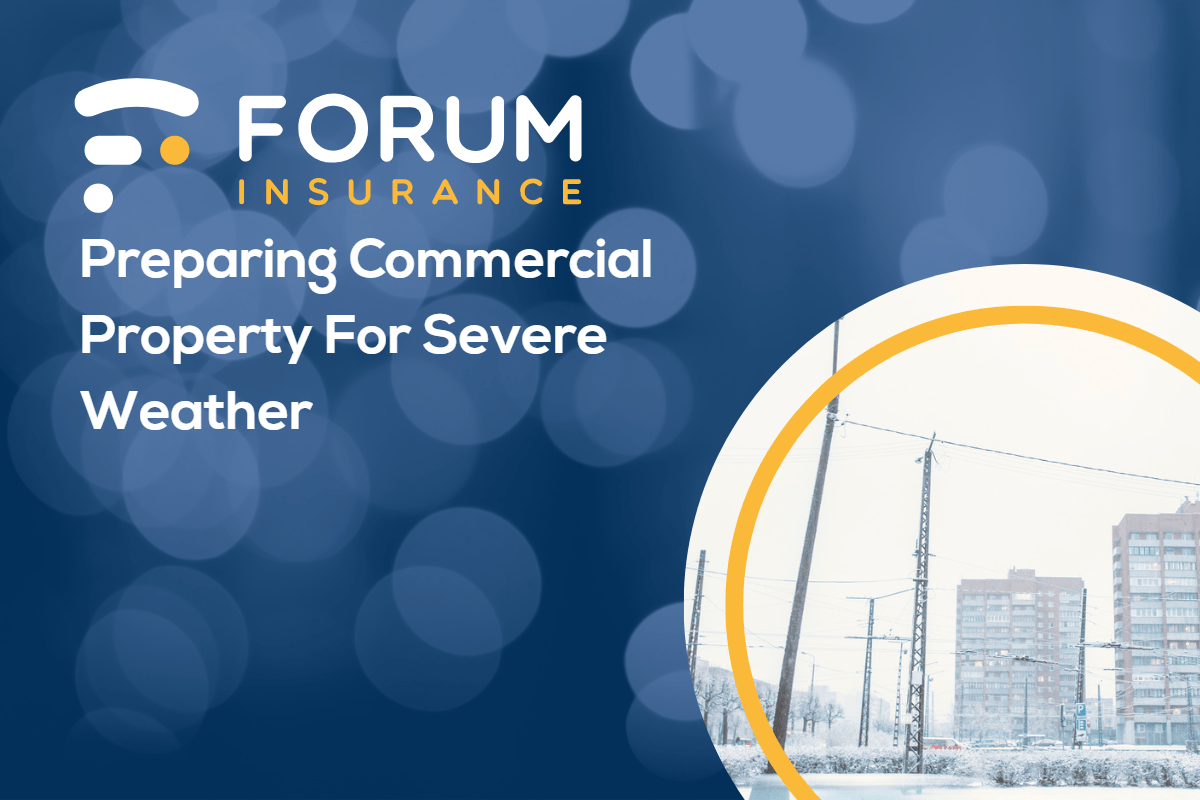SME Insurance Guide

Introduction
About BIBA, the CBI, and the ABI
The British Insurance Broker’s Association (BIBA) represents the interest of insurance brokers, their customers, and the intermediaries as the leading general insurance intermediary organisation of the UK. BIBA is regarded as one of the key advisors in the insurance sector for the regulators, members, stakeholders, and consumer bodies. It has more than 1800 regulated firms in membership. It aims at advising people on important issues related to insurance and aiding the same people and their businesses to land on the most suitable insurance for them.
The Confederation of British Industry (CBI), on the other hand, is a non-profit business organisation, originated in 1965 as a product of the Royal Charter. It acts as the voice of around 190,000 businesses in the UK. These businesses vary in sizes and are dispersed over a wide range of sectors. The employment number for these businesses is almost 7 million. CBI has been working on the mission of making the conditions in the UK suitable for all kinds and sizes of businesses to prosper and compete.
CBI is not just limited to the UK. It has offices spread around the world, touching Washington, Delhi, Brussels, and Beijing. As a result, it takes the voices of the businesses in the UK to the rest of the world and ensures that they are heard.
The Association of British Insurers (ABI) speaks on behalf of the long-term savings industry and world-leading insurance in the UK. The insurance industry has not only been a productive sector but also thriving and inclusive. It has, in many ways, supported the British economy to achieve the balance and innovation it has today with the employment of over 300,000 individuals, out of which 2/3 work outside of London. The ABI came into existence in 1985 and has now come to represent 200 member companies. It has successfully provided many businesses and households peace of mind throughout the UK that includes most specialists’ providers and household names.
Managing risks, the role of insurance, and how it works
Why is it important to manage risks!
Having an insurance policy without proper risk management done to back makes the insurance cover inefficient. In fact, if you have proper risk management in place, the chances of you securing a better insurance premium increase. You need to start by considering and figuring out the risks your business faces. Once you have the risks insight, the next step is to implement management strategies to avoid and reduce them. A Business Continuity Plan can help you with risk management. The plan has to be tested, and the employees should be on board with it. What a Business Continuity Plan does is that it identities the vulnerabilities of the business and helps you protect them. As a result, your business finds the support it requires to channel through problems and tough times. Moreover, the plan also enables a business to be prepared in advance for threats, of which the most dangerous is a cyber-attack on your IT systems.
The role of insurance and how it works
The importance of insurance to the economy can be understood from the fact that it reduces the risks of business by transferring it to the insurers. The risk is simply transferred in return for a premium paid by the business to the insurer. This transfer of risks helps a lot of businesses avoid or reduce the intensity of the consequences they may have faced otherwise. Some businesses do not even have the potential to survive through the negative consequences of the risks involved. As a result, having insurance in place reduces or eliminates many major risks, thereby helping businesses prosper. What insurance simply does is that it collects premiums from many, and a chunk from this large pool of premiums pays for the cover of those who face the consequences. The end result is that everyone finds themselves in a stable position.
Insurance is not protection for the businesses against events that are highly likely to happen or are destined. However, it is protection against those events which are unfortunate and unforeseen. It is, however, important to note that some unforeseen events such as a nuclear war breaking out or a pandemic are massive unfortunate events in terms of their financial impacts that even insurance fails to provide adequate cover for them. So, in simpler terms, insurance is there to protect you against damage, theft, and loss of assets and property and a wide range of liabilities.
Now coming to how an insurer calculates the premium to charge a business. There are several factors at play when the premium charge for a business is being decided. However, some of the factors are pretty common; for instance, your claim record history and your credit score. Moreover, the insurer will want to know whether any of the directors on the board of your company has ever been involved with companies that are now declared insolvent.
Let’s take an example of a commercial property risk assessment. The factors an insurer will consider include:
- What are the premises constructed out of? If the frame of a building is made out of timber, it is at a higher risk than a building made out of reinforced concrete.
- What is the nature of the work/operation of the business? A business that operates in an office-based dynamic is certainly at a lower risk than a business operating with chemicals and food.
- What kind of protection measures are in place? Are there CCTV cameras, security and fire alarms, sprinklers, etc. installed on the premises? If yes, then they definitely make the business more secure and less risky.
- What are the kind of risk factors the business is exposed to? This is related to the location and environment of the business. For example, a business operating near a river is more at risk of a flood than a business operating away from it.
TIP: It is important that you convey a proper description of your business with all relevant evidence to back your claims. In this way, the insurer will find it easy and convincing that your business is a well-managed one with fewer risks involved.
Choosing the right cover for you
You must take into account the fact that all insurance policies are not the same. Most of the differences between insurance policies lie between what is covered and what is not. Moreover, there are also variations in terms of limits of indemnity and sums insured.
Another important thing to consider is the additional services that often come alongside an insurance policy. A good example of this is checking out whether you are being offered a claim service round the clock. Moreover, it should be checked whether there is any access offered to a legal helpline. These are just two very basic examples. However, one must consider all factors and services according to the needs of the business and what suits it best.
Therefore, it is extremely important that you have a perfect understanding of what terms and policies you require. In this way, you will be able to protect your business properly and face no issues when it is time to make any claims. An insurance broker can be of great help in making you understand the needs of your business and, as a result, help you design the perfect insurance package.
The broker will also do a detailed analysis of the market in order to match you with the perfect insurer. For this, he/she will put in place several criteria. Some of these will include claims service, breadth of coverage, expertise in your trade sector, and the value for money.
Types of insurance cover
Being an employer, you are legally bound to have employer’s liability insurance. If your business makes use of any motor vehicles, then you are legally bound to have third party motor insurance. However, there are also other types of insurances that cannot only be termed as sensible precautions but also steps to make your business more efficient, safer, and stronger.
The job of an insurance broker is to sit with you and identify the important areas of risks your business is expected to face. After the identification process, the insurer helps you choose the right insurance plan that you will require to protect your business. Moreover, they will guide you in developing mechanisms to stay on top of all the risks, thereby decreasing the possibilities of them turning into big setbacks. In case a setback occurs, the insurers are there to provide you with a financial cover so you can continue doing the business without having to stop operations. There are many incredible insurance packages out there that cover all the significant aspects of a business usually required by it. You can also go for an bespoke package that is tailored to your specific needs and requirements as not everyone can benefit from the standard packages.
Property insurance
For the majority of businesses, property insurance is inherently the most important cover. It offers protection against any damage brought about by a fire outbreak, flood, escape of water, lightning strike, vandalism, theft, storms, and riot. Property insurance can also provide cover for accidental damages such as breakage of a window if extended to an “all-risk” protection plan.
If your machinery, contents, stock, or buildings suffer through any kind of damage, you can claim property insurance. However, make sure you go through the cover of your policy. In this way, you will be able to make the right claim without asking for more or less. If your business has potential threats from terrorism due to the location or nature of the operation, you can also get insurance against it, alongside the property insurance cover. It is highly unlikely that acts of terrorism may occur in a stable and secure country. However, it is still a potential risk, given the rise in global terrorism. As a result, you should consider it, especially if you are situated in a major business hub of a major city.
Business interruption insurance
Business interruption insurance provides cover in situations where your business suffers a loss due to any disruptions. For example, if a fire broke out in your office, which caused you to stop operations for a whole week, your business will not be able to earn a normal amount of money that month. In such a case, business interruption insurance will provide cover for the loss incurred. It can be any kind of damage that causes disruption in business operations. In order to fully understand where you stand with business interruption insurance, make sure you go through your policy first. It is mentioned there the kind of damage it covers. Incidents that cause disruption and make your business eligible for cover can include flooding, fire, or any type of physical damage.
There are also situations where your own premise does not suffer any damage. However, you are still denied access to it due to a third party or nearby disruption. A good example of this is the closing down of the premise due to a gas leakage nearby. Some policies are kind enough to extend the cover for losses during this kind of situation as well. There is also a small number of policies that provide cover in case there is an outbreak of a notifiable disease near your area of work. For instance, if there is contamination in the water that spreads hepatitis, you will be required to shut down operations until the investigations are done, and the problem is solved.
In order to make a claim for business interruption insurance, you need to take into account the amount of time your business will take to return to the same level of turnover, which it had right before the loss. In insurance terms, it is called the indemnity period. You need to ensure that this time period is calculated as accurately as possible to get the right amount of cover. There is a standard 12 months of time offered by most policies. However, in many cases, this is not enough. Therefore, you should be thinking beyond till either 18 months or sometimes even 24 months. Get the help of an insurance broker to ensure that you make claims for the right amount of time to avoid any further losses.
Employers’ liability insurance
If you have employees working for you, the law requires you to have employers’ liability insurance. Even if you are a limited company having some directors working, you will be legally required to have this type of insurance. It provides protection and covers for employers against the legal costs or due compensations in case an employee experiences an injury or accident as a result of working for you.
This policy even offers claims for industrial diseases, for example, deafness. The law has set up a lower limit of cover for all insurers to provide. This stands at £5 million of cover. However, most policies offer a £10 million cover as standard. It is important to note that as an employer, you are bound to arrange cover for all types of employees, including volunteers, ex-employees coming back for work, and those who are on temporary contracts.
Public liability insurance
Public liability insurance is not a compulsion by law. However, it still plays a vital role in your business’s overall protection through insurance. It provides protection against any compensation claims made against your business by the public. The claims can be made in events where a member from the public suffers an accident or injury as a result of your negligence. For example, if you delayed getting a glass door fixed and the customer suffers an injury while passing through it. However, it is important to note that anyone who makes claims against you has to prove that you were indeed negligent in providing the care. If you are proven guilty, you would have to pay compensation, which could be a great loss.
Therefore, if you do decide to get public liability insurance, ensure that the minimum cover offered is £5 million. If you are hired by the Government or any large firm, they will mention it on their contract the minimum level of cover you need to have. When considering the limit, it is important to understand the level of threat your services or work may have on the general public. The greater the chances of your actions causing damage to someone else, the higher the minimum cover should be.
Environmental liability insurance
Environment liability insurance is similar to public liability insurance. However, public liability insurance provides cover against the cost claims made against you by the third party that suffered the damage. With environment liability insurance, it provides protection if any claims are made against you by the law to pay remediation for any pollution or damage caused to the environment. It is important to note that with public liability insurance, the factors of negligence and accidents are taken into account. However, with a business polluting the environment, the law holds the belief that even if the business was not negligent and took appropriate measures, it is still required to pay remunerations. This can include reinstating habitats such as lakes or rivers. As a result, if your business is working with any products or materials that are a potential threat to the environment, consider purchasing environmental liability insurance alongside a public liability plan.
Product liability insurance
Similar to the previous two types, product liability provides cover in case a product you sold to a customer brings them damage or injury or turns out to be defective. For example, if you deal in electronic peripherals and a product you sold caused a fire in the house of a customer as a result of overheating. The policy will ensure that you are covered for if the investigation results find that the fault was in place at the time of the manufacturing of the product that caused the fire.
Product recall insurance complements product liability insurance. This is helpful in covering costs that you may incur as a result of recalling your products after a customer found them to be deficient or defective in some way.
Cyber insurance
The world is increasingly moving to the internet and the cloud for important transactions and storage of sensitive data. As a result, there has been an increasing need for cyber insurance. The advent of the novel Coronavirus of 2020 has also increased cybercrime significantly as most of the world sits at home and operates through cyber platforms. UK businesses have experienced an increasing number of cyber-attacks. Many businesses are in one way or another relied on Information Technology (IT) in carrying out their business operations. Consequently, if there was any disruption due to damage to the IT equipment or failure caused due to a cyber-attack. Moreover, it also impacts the reputation of the business, especially if it holds sensitive information about its clients.
It is important to note that some other insurance policies also provide cover for any potential cyber risks. These include property, professional indemnity, or business interruption insurances. However, they do not provide full cover rather only for certain elements that are at threat due to cyber risks.
If you are dealing with one of the following, you should get advice from a specialist:
- If you are in possession of sensitive client data such as addresses, banking information, names and numbers.
- If you have heavily relied on IT systems in place or trade through a website.
- If you process the information for payment cards.
What does it cover?
You are provided cover by cyber insurance for any loss incurred due to loss of information or as a result of damage to your IT networks and systems in place. The general approach of cyber insurance policies is to provide assistance during the incident and also help to manage it. As a result, it helps the business to get back on its feet and also save some reputational face.
Getting help from an insurance broker is extremely important when it comes to deciding the terms for your cyber insurance. However, you should keep in mind the following cover factors when looking for the perfect insurance:
- Cyber Crime or ‘phishing.’
- Ransom.
- Restitution of IT systems and data.
- Costs involved with sending notifications to customers about the loss of their personal data and the attack.
- The liabilities you will owe to third parties after having suffered a loss of data.
A cyber-attack can also cause business interruption losses. Therefore, you can also make claims against it. For example, an attack on the systems may halt the operations of your production line. Even though no physical damage or loss has been incurred, however, a financial loss still prevails.
A cyber breach can cause severe damage and losses. However, having cyber insurance can boost up the recovery process. There is also technical assistance offered by many insurers as part of the policy. Make sure you go through the policy terms completely and claim a full advantage in case you experience a breach.
Directors and officers insurance
Directors and senior managers are essentially responsible for the management of the business. However, in case any of them is held liable for any mismanagement at their end, directors and officers insurance is there to protect them. It’s there to protect you financially against any claims made against you personally as a director, partner or officer of your business. From health and safety concerns to a claim for breach of duty, negligence, defamation or even pollution, our insurance will cover you against the costs of defending or settling legal or criminal actions.
Employment practices liability insurance
In most cases, this type of cover is purchased together with directors and officers insurance. It provides cover for costs incurred against claims made by your current or ex-employees to defend you and your business. The claims made can be with regard to misconduct and discrimination at the place of work. This also covers bullying and harassment. A good example of this will be the abuse of authority to wrongfully dismiss an employee.
Professional indemnity insurance
If you are working in the services sector, especially consultancy or any business that requires you to provide clients with advice, then professional indemnity insurance is for you.
It provides financial protection against any claims made by a third party, mostly a client, alleging that you gave misinformed or negligent advice.
Some specific job roles, such as surveyors, architects, lawyers, accountants, and financial advisers, are required by the professional regulator to have some minimum limit of professional indemnity insurance due to the nature of their role. It is also important to have because legal cases of professional indemnity claims are often quite complex and thereby cost a lot. The cover it provides includes a certain limit of legal costs and compensation to be paid to the other party involved.
Motor insurance
If your business owns any vehicle which is driven by a driver for either delivery purposes or for personal use or any other work, it is legally bound by the Road Traffic Act to be insured. There is also a third-party cover, which is to ensure that in case a third party suffers any damage or injury as a result of the business’s vehicle being drive on the road, the business is protected and covered for. The pool of cover can be further extended to include risks of theft and fire. Moreover, there can also be a complete cover, which also includes accidental damage. It is important to note that when you choose the motor insurance for the vehicle, the class of use should be selected carefully. This is because there is a huge difference between and in policies for a vehicle driven by a delivery driver and for a vehicle driven by a taxi driver.
Trade credit insurance
Trade credit insurance is important and extremely helpful if you are in the business of shipping your products first and then receiving payment. It provides protection in an event where a customer ends up not paying you the agreed amount for a product you have already delivered to them. You can then include a debt collecting service as you are covered for the bad debt. Trade credit insurance can save you from heavy losses if your customer base is small, and a single customer letting you down can impact your profits significantly.
Other insurances
Intellectual property
We always focus on protecting tangible property. But what about an intangible property that is actually an asset to the business? There are often cases where intangible assets, for example, brand identity, trade secrets, and patents which hold more value than your tangible assets. It this is the case, then intellectual property insurance will ensure that you are well protected against other businesses infringing on your trademarks, copyrights, and patents. Moreover, if any other business or party makes any allegations against your infringement of intellectual property, the insurance will be there to defend you.
Fidelity guarantee
Fidelity guarantee will protect you if an employee is involved in stock or money from your business. If you are involved with the practice of employing many seasonal or temporary employees, then you are potentially at higher risk. Some policies will also cover you if your employee colluded with people outside the business.
Money
As cash and cheques are increasingly growing out of fashion, money insurance covers are losing their popularity as well. They have been replaced by the more advanced and modern cyber insurances as most money is now in digital form. Hence crimes committed against it are in the cyberspace. However, if you still think that you need money insurance cover, then know that it provides cover if anyone steals cheques, money, or any similar form of medium. The act of stealing either has to be at your premises, or at an external location where you have stored the money or during transit with an authorised employee. There is no cover for anything happening to your cash if it is on the way via post or courier. The cover can also be extended to paying the cost of treatment for an injured employee during a theft.
Marine cargo
If your business activities involve shipping goods to another country or move them nationally, then marine cargo insurance may be a requirement or need for you. for this type of insurance, it is highly recommended that you talk to an insurance broker as it is a specialist kind of cover. They will be able to guide you through the type of cover you may need depending on the terms of sale you and the customers agreed on and the location of where the cargo has to be shipped.
Personal accident and sickness
Personal accident and sickness insurance enable the business to create an employee benefit. Moreover, in case an illness or accident prevents an employee from working, the insurance can make it easy for the business to recruit temporary replacements. The cover is provided by the policy either as a multiple salaries that are payable for a time period after the illness or accident has taken place. Or on the other hand, the cover is provided in terms of a monetary benefit. This can be paid as a fixed sum. Cover can be received on the death of an employee or if the employee suffers a temporary or permanent disability.
Business travel
If your business operations require some of the employees to travel to other countries from the UK, then you must have an annual business travel policy. The cover provided by this policy includes medical expenses, which can be of significant importance in countries where medical is extremely expensive, such as the USA. The policy may also pay for baggage, repatriation, personal liability, cancellation, and money.
Legal expenses
Legal expenses cover is most commonly used with small businesses. It has gained popularity recently as it covers the cost of defending or pursuing legal action. The legal actions covered under this are not insured by any other policy that you may have. Some insurers even provide a highly useful legal helpline as a complementary service.
Engineering inspections
Regular inspections are made mandatory by law if you have a plant in places such as boilers, forklift trucks, escalators, lifts, or ventilators systems. It is not always the duty of the insurer itself to provide the inspection service. The insurer mostly provides a dedicated person who guides you through the legal requirements and does all the inspection himself. Cover for any damage or loss of equipment, which includes breakdowns leading to business interruption losses, are also provided by Engineering insurers.
Insurance that protect your employees
Keeping your employees safe and protected is essential for the success of the business. this is because they play a significant role in carrying out all the business operations successfully. As a result, there are a number of insurance products out there aimed at keeping you and your employees financially secure and offering them medical assistance in case they fall ill. In this way, employees are able to get back on their feet quickly and stay in work. Therefore, in order to keep your employees protected, you can consider the following insurance products apart from the compulsory employers’ liability insurance:
- You can get a combination of life insurance and personal accident and sickness insurance for your employees. This can play a vital role as an important staff benefit as it will protect your business as well.
- Employees who fall ill or suffer an injury and cannot work as a result of it can be protected with income protection insurance. This is also important for employees who suffer a reduction in their salaries for a long period of time and are now earning less.
- If an employee falls prey to an illness or any other medical condition outside of the premise of your business, they could cause a disruption to the business operations. To avoid such inconveniences, you can get private medical insurance for the employees. This will provide cover for any private medical care that they may require, thereby keeping them mentally and physically fit to work for you.
- There is also the option of health cash plans. These plans provide cover for the fees for dental care, eye tests, and physiotherapy your employees may need.
Your duty of disclosure
It is extremely important that you give all the relevant information about your business to the entity or person you apply through for insurance. Whether it is the insurer directly or through an insurance broker, giving them correct and complete information is absolutely necessary. Failure to fulfill this requirement can lead to issues in the future when you make any claims. This is what the Insurance Act of 2015 termed as your duty of disclosure. This was put out in the act in order to clearly state what you should disclose to your insurer and your obligations to them to avoid any issues.
The key points to note are:
- To fulfill your duty of disclosure, you must carry out enough enquiries in relevant departments of the business to find out new information and verify the already existing one for insurance risks concerned.
- All the knowledge in possession of the senior management must be included in the enquiries as well as of those involved with the purchase of the insurance. This also includes your broker if you have one.
- If there are any third parties involved with the business, enquiries must be made with them as well. Third parties can include contractors, external consultants, or anyone who is linked to the policy.
- You should clearly fill out the insurance application so that it is easily understood by the insurer.
- If there are any areas of concern or unusual activities that pose a threat to the risk, you must point them out so that the insurer knows.
The duty of disclosure is not a one-time thing. It continues and stays live as your business continues and grows. Any changes in the business after the policy has been placed must be relayed to the insurer as part of the duty of disclosure, if relevant. For example, if you decide to make one of your many premises unoccupied, there will be an increased risk of vandalism or damage through other means. The insurer, in this case, may ask for an additional premium to offset the risk, or amend the cover provided.
Many insurers have the policy to allow the business to keep the premises unoccupied for thirty days. However, once the thirty days have been completed, the cover provided for the premises is limited, and there are new conditions imposed. This could include regular inspections of the premise or charging an additional premium.
Guard against underinsurance
Underinsurance is often taken lightly and considered a strategy by insurers to sell higher coverage. However, the truth is exactly the opposite. Being underinsured can cause you serious losses at the time of making claims. This is why most business consider the issue of underinsurance very seriously, and so should you. One good example of underinsurance would be to understate the actual amount of stock on the premise to the insurer. Therefore, if a business is expecting growth or is going through a period of growth, it is extremely important that the level of cover is reviewed and changes made with the insurer if necessary.
If underinsurance has taken place, the insurer can choose from two options to go forward:
1. By charging an additional premium
There is a recalculation of the premium, however, this time based on the actual amount of turnover or stock. After the calculation, necessary adjustments to the premium are made.
2. Apply the ‘Condition of Average’ to the claim settlement
The other route that the insurer can take is that of applying the Condition of Average. In order to understand this fully, let’s use an example. So, for instance, there is 50% underinsurance attributed to the business. now, if this business suffers a loss totaling £40,000, the Condition of Average will reduce the payment of a claim to 50% of the loss suffered. Therefore, the final payment will be of £20,000. As a result, a business that has suffered loss either will not able to get back on its feet on time or find it extremely difficult to do so.
It is, therefore, recommended and encouraged that you make accurate calculations of the sums you want insured. Moreover, you should ensure that there is no understatement of the contents, property, turnover, and stock. In case you are going through a period of growth or are expecting rapid growth, the initial estimates that you may have provided to the insurer will become obsolete. Therefore, you should always be reviewing these estimates according to the growth of your business and inform the insurer accordingly.
Another important area that requires your full attention and time is the indemnity period. many businesses fall prey to underestimating the time period they think they would require the business to recover from a business interruption. As a result, this underestimation of time leads to losses when making claims. The standard period of 12 months is not enough in most cases. Therefore, to stay on the safe side, businesses should consider 18 or 24 months, unless the business interruption is actually minimal.
Making a claim
While having the option to make a claim due to unforeseen events, no business is excited to make claims. Most businesses would want to not be in a situation where they have to make claims. However, there is no method available to avoid unforeseen circumstances completely. Therefore, it is important that you are familiar with the process of making claims in order to ensure a smooth and quick process.
If you identity a potential claim, ensure that your insurer is notified at the earliest. Moreover, provide them with all the relevant information at hand at the time of notification. Insurance policies have a time bracket during which a claim has to be reported. Make sure you follow the time bracket to avoid any inconvenience.
Top tips for hassle-free claims
- Keep a record of the evidence at hand. You can do so by taking photographs or recording a video of the damage done. in case of a robbery, ensure your CCTVs are in place and immediately store the recorded data somewhere safe.
- Ensure that you approach the appropriate channels to apply for a claim. This can be through your insurer’s claim line or your insurance broker. Form a professional relationship with the loss adjuster and work with them constructively. Loss adjusters are responsible for negotiating and agreeing on claims on the insurance company. They basically act as the middlemen. They are paid by the insurer. It is important to note that there is a difference between a loss adjuster and a loss assessor. Loss assessors can be of aid in assessing the insurance claim, but you as the policyholder will often have to finance this.
- Make sure that the loss you have suffered is contained as much as possible. For example, if there is water leakage, ensure that all electrical equipment is removed from the areas surrounding it. You can also get repairs for preventing it to spread further. However, talk to your insurer before taking any steps. If the work at hand requires emergency attention, make sure you keep all the record of the proceedings as the insurer will require it.
- Do not dispose of any damaged items. Keep them with you until the insurer has seen them and assessed the damaged. Once given the green light, you can dispose of them. In case the damaged items cannot be kept for long, make sure you keep a record in terms of photographs and samples.
- Make sure you have gone through all the policies regarding claims reporting. For instance, you may need to report an accident in the workplace under RIDDOR (Reporting of Injuries, Diseases, and Dangerous Occurrences Regulations 2013) to your insurer.
- There are often timescales laid down by the law when it comes to any motor or liability claims received from a third party. As a result, you must report than as soon as possible to the insurer so that it can comply with all the important deadlines laid down by the law.
Making a complaint
You can always make a complaint against an insurer if the service they provided you on a claim was not satisfactory. Every insurer must mention their complaint procedures in the policy as well as on their website. The wording of the policy must be clear and easily understood by all the customers so that no misunderstandings occur. The standard way to go about a complaint is to raise it with your insurer. The insurance then has a time period of eight weeks to respond to it fully. If the final response of the insurer does not satisfy you, you can refer it to the Financial Ombudsman Service (FOS). Here your complaint will be adjudicated given the condition that the:
- Annual turnover of the business is less than £6.5 million.
- Balance sheet of the business totals to less than £5 million.
- Has fewer than 50 employees.
You won’t be charged any fee by the FOS. Moreover, the insurer has to follow any decision they make.
Top Tips
Use an insurance broker
Without having a sound knowledge of insurance, it can turn out to be quite tricky. Therefore, the advice of an insurance broker is always recommended when purchasing an insurance product. They have the expertise to guide you through the process and match you with the perfect cover or design a tailored cover specific to your needs. The broker charges a fee but performs those tasks for you with efficiency and perfection that you would have found extremely difficult to do.
Have a business continuity plan
If you have bought an insurance, then a having a business continuity plan complements it well. Insurance definitely helps you get back on your feet after you have suffered a loss. However, having a business continuity plan will make the outcomes even better.
Complete ‘Cyber Essentials’
Cyber Essentials is a certification you can get from the Government. It basically helps you and your business to be protected against a wide range of cyber-attacks, which are pretty common.
The majority of the cyber-attacks carried out on businesses are basic in nature as they are carried out by unskilled people. You can consider it as a thief trying to carry out a theft via your front door. However, if he finds it locked with a good security system, he won’t be able to carry out the theft. Cyber essentials do the job of a good security system in this case.
The vast majority are very basic in nature, carried out by relatively unskilled individuals.
Often customers even ask the businesses if they have Cyber Essentials certification. This is just to ensure that your IT system is capable enough to keep their data secure. This is also true in the case that you are working with the Government. You will be required to have Cyber Essentials certification.
Demonstrate that you are a well-run business
If your business is running in poor condition, insurers will know that the risk is more. As a result, they will charge a higher premium. However, if you are able to demonstrate that your business is well run with fewer risks involved, the insurer will charge a lower premium. To demonstrate this, you need to do your own risk assessments and collect all the relevant evidence in the form of accreditations, professional qualifications of employees, financial account, quality control procedures, unqualified audits, and if there is any ongoing training of employees.
Keep good records
Make sure that even nothing is going wrong, you keep good records of your business. Keeping good records can help you receive full claims when the time comes, such as a business interruption loss. It is also important to keep good records when you are required to disclose information under the Insurance Act.
Notify your broker/ insurer of changes to your business
It is vital that you notify your insurer or broker of any significant changes that your business may go through. Changes in the business have the potential to directly impact the insurance policy. As a result, they can also impact the payments of policy at the time of a loss. Therefore, all changes must be reported to the broker. Changes may include:
- A notable decrease or increase in stock or turnover. Change in turnover can significantly impact claims made against business interruption policy.
- A change in the number of employees or a change to what they are doing.
- A change in property occupation as this impacts the risk.
Know your schedules from your wordings
Policy wording
Policy wording is the most important document you will receive from your insurer. It is also the legal foundation of the insurance product you have purchased and contains all policies on which it will act. You should always do a thorough review of these documents even if you are working with an insurance broker.
The policy wording has all conditions and definitions of cover it will provide. Moreover, there are also mentioned the limits or sub-limits that are applied in case a loss occurs.
Policy schedule
The policy schedule has all the important aspects of sums and covers insured outlined with respect to the policy wording. It will have all the relevant information, such as the name of the policyholder and risks involved, such as the persons covered and the property with detail. It will also contain information about the amount of coverage, method of payment, any major exclusions, and the excess.
It is important to note that the policy schedule will not make much sense if read without a policy wording. This is because it is simply a broad outline of the parameters mentioned in the policy wording.
Why use an insurance broker?
The biggest question after why one should buy insurance is why to use an insurance broker. Well, to answer this, an insurance broker can be your advisor throughout the process of purchasing an insurance product as well as help you when making a claim. The broker will be representing you as a client, and so will promote your interests.
Benefits you can avail from an Insurance Broker:
- Insurance Brokers have knowledge of and access to almost all the products available in the market. As a result, they are able to do the market research for you and that too very quickly because they know where to look for what.
- You can get advice from them on suitable insurance protection.
- You can have them represent you when making a claim and during settlements.
- Insurance brokers are regulated by the Financial Conduct Authority (FCA).
- You can also get services of risk management and assessment of your premise security, fire prevention systems, and health and safety issues.
- They can help you understand the insurance documents and the information related to it.
- They ensure that the correct cost of the policy is communicated to you with no extra costs.
- They offer fair treatment to all their customers in case a complaint is registered. Financial Ombudsman Service is a further assurance to the customer in such a case.
- They have their own professional indemnity insurance protection providing customer confidence.
Recent Posts









